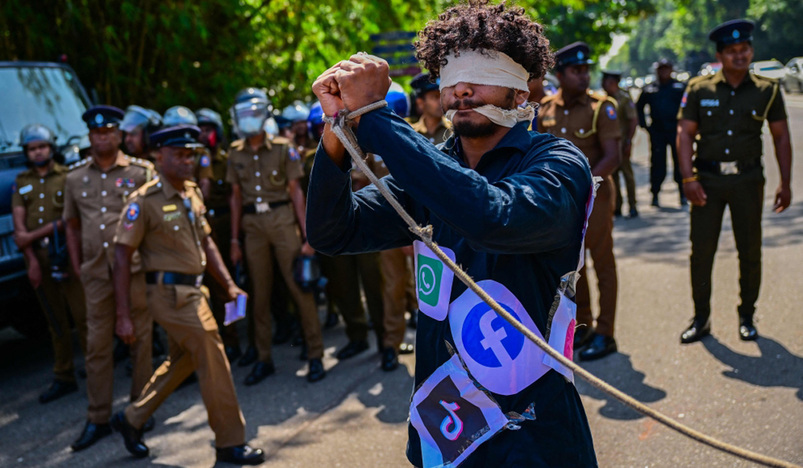
Social media law
Sri Lanka on Wednesday passed legislation imposing hefty jail sentences on social media users for posts the authorities deem false or a threat to national security.
The main opposition said the law was aimed at stifling dissent ahead of presidential elections slated later in the year, while a coalition of international internet and technology companies warned it was "unworkable".
The Asia Internet Coalition, which includes Apple, Google, Yahoo, Meta and X, said ahead of the bill passing into law that it was "unworkable and would undermine potential growth and foreign direct investment into Sri Lanka's digital economy".
It was not immediately clear if any of the concerns raised by the AIC had been included in the final version of the Online Safety Bill, which was passed in parliament by 46 votes.
Social media was a key tool used by protesters during the 2022 economic crisis, with countrywide demonstrations forcing then-president Gotabaya Rajapaksa to step down.
Public Security Minister Tiran Alles denied the law would be used to stifle dissent, arguing it would help stop online scams and bullying.
Executives at social media platforms could face a prison sentence of up to 10 years if they fail to disclose user details of those accused of creating posts deemed illegal under the new law.
During debate in parliament, opposition legislator M. A. Sumanthiran called the law an "oppressive and a draconian piece of legislation".
The law makes anonymous or parody social media accounts illegal.
Users posting from outside Sri Lanka would also be liable for prosecution.
.jpg)
Qatar Secures Place Among the World's Top 10 Wealthiest Nations
.jpg)
Hamad International Airport Witnesses Record Increase in Passenger Traffic

Saudi Arabia: Any visa holder can now perform Umrah

What are Qatar's Labour Laws on Annual Leave?
Leave a comment